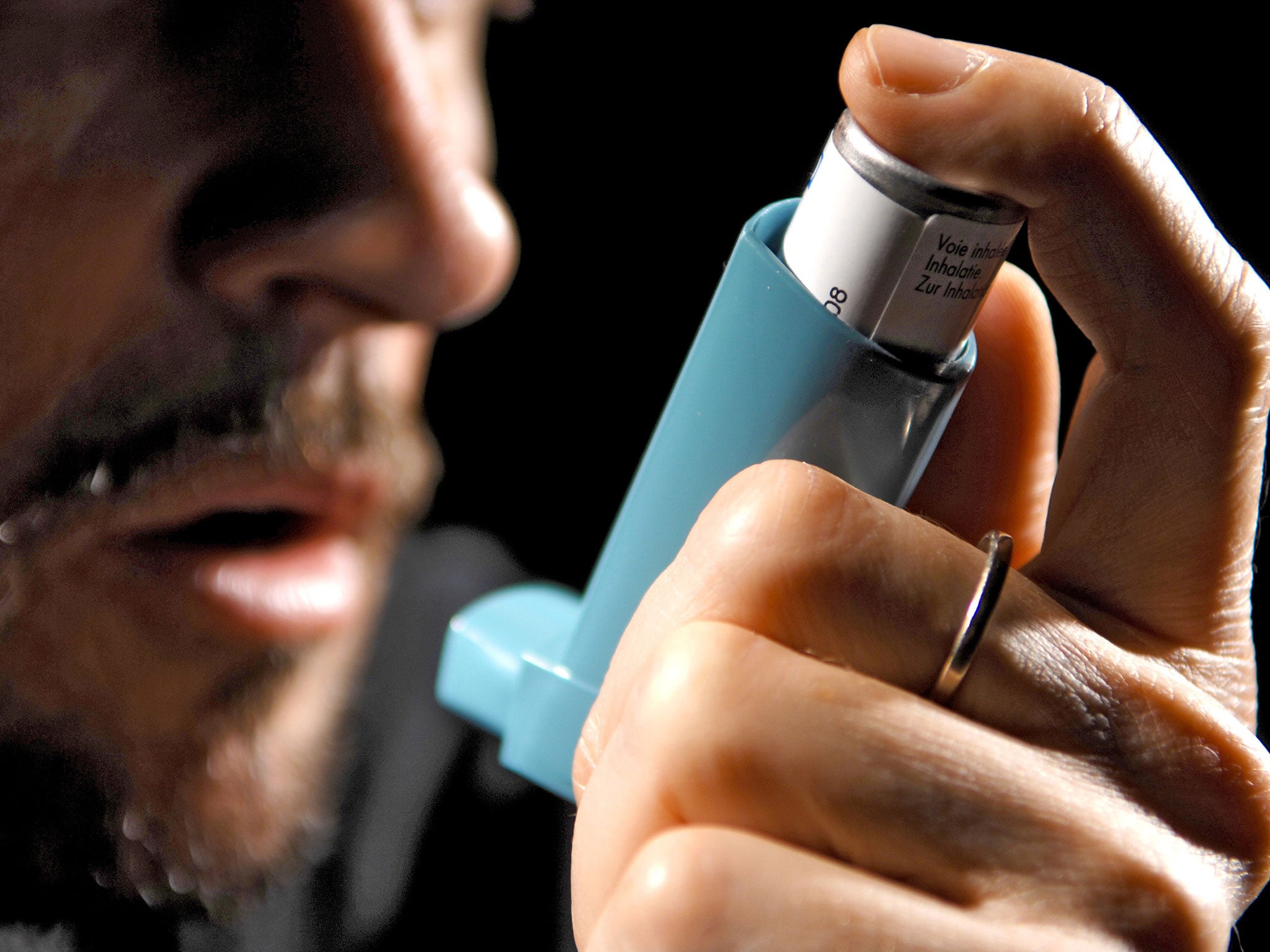Asthma deaths: patients 'dying needlessly' because of poor care, report warns
The UK has one of the highest asthma death rates in Europe

Your support helps us to tell the story
From reproductive rights to climate change to Big Tech, The Independent is on the ground when the story is developing. Whether it's investigating the financials of Elon Musk's pro-Trump PAC or producing our latest documentary, 'The A Word', which shines a light on the American women fighting for reproductive rights, we know how important it is to parse out the facts from the messaging.
At such a critical moment in US history, we need reporters on the ground. Your donation allows us to keep sending journalists to speak to both sides of the story.
The Independent is trusted by Americans across the entire political spectrum. And unlike many other quality news outlets, we choose not to lock Americans out of our reporting and analysis with paywalls. We believe quality journalism should be available to everyone, paid for by those who can afford it.
Your support makes all the difference.Asthma patients are dying needlessly because of failings in their care, a damning new report by medical experts has found.
Patients are receiving inadequate information, education and advice on managing their asthma, the report states, while medics are failing to spot key signs showing patients are struggling.
The authors are now calling for an end to “complacency” around asthma care, after the report identified “major avoidable factors” in two thirds of asthma deaths, indicating more deaths could be preventable if these factors are addressed.
In 2012, 1,242 people died from asthma in the UK, one of the highest asthma death rates in Europe. There are 5.5 million asthmatics in Britain.
For the report, experts from the Royal College of Physicians (RCP) examined 195 asthma deaths, including 28 children.
They identified at least one “major potential avoidable factor” in 67 per cent of the cases.
GP Dr Mark Levy, RCP's clinical lead for the report, said doctors, patients and their families failed to recognise life-threatening danger signs of the condition.
The review found that many of the patients who died had excessively used their reliever inhalers in the months running up to their deaths, suggesting they were not managing their disease well.
Medics should have spotted that they were repeatedly prescribing these inhalers and taken action, the authors said.
Meanwhile one in 10 of those who died had been admitted to A&E for an asthma attack within the four weeks before their death.
Almost half (45 per cent) of those people who died following an asthma attack did not receive any medical help during their attack and the vast majority of children died before they reached hospital.
Dr Levy said: “It might be that in these cases people were complacent about their asthma and we feel that the majority of these people did not know what to do.”
He said that three quarters of those who died did not have a personalised asthma plan which would have provided them with this information.
The experts said that half of those who died were being treated for mild or moderate asthma at the time - indicating that neither patients or medics realised how serious the cases were.
The report concluded: “The review found deficiencies in both the routine care of asthma patients and the treatment of attacks.
“In many instances neither doctors nor patients recognised the signs of deteriorating asthma; they also did not react quickly enough when these were seen.”
In the UK, three people die from asthma every day and every 10 seconds someone suffers from a potentially life-threatening attack.
Charity Asthma UK said that prescribing errors were detected in 47 per cent of the deaths studied.
Kay Boycott, chief executive of the charity, said the study identified prescribing errors of a “frankly horrifying scale” and is a “damning indictment” of current routine practice.
The report, released to coincide with World Asthma Day, includes a series of recommendations for healthcare workers including the introduction of an electronic surveillance system to be set up to show doctors and pharmacists when people excessively use reliever medication and do not use enough preventative medication.
Anyone who has been taken to hospital as an emergency should be reviewed within 48 hours.
The authors also said that more must be done to educate people about their condition and recommended that health care organisation should have one named individual with a responsibility for asthma care.
Professor Mike Morgan, NHS England's national clinical director for respiratory services, said: “These statistics are a call to action for commissioners, health professionals and patients.
“Every patient should have a care plan which should be regularly reviewed and patients should be supported to manage their asthma, including effective inhaler technique and knowledge of their condition.
A spokesperson for St John Ambulance said: "Complacency about asthma is very dangerous, as we have seen from this report. Knowing basic first aid can be crucial in helping asthma sufferers during an attack.
"Simple steps such as keeping the sufferer calm, sitting them in a comfortable upright breathing position, encouraging them to use their inhaler, and calling for emergency help will ensure they get the immediate attention they need to stop their condition from becoming, in some cases, fatal."
Additional reporting by Press Association
Join our commenting forum
Join thought-provoking conversations, follow other Independent readers and see their replies
Comments